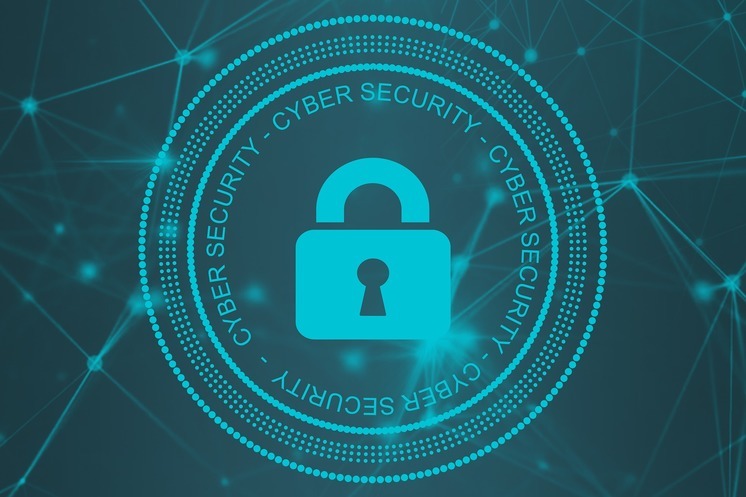
In today’s digital age, cybersecurity is not just a concern for large corporations; small businesses are increasingly becoming targets for cyberattacks. According to recent studies, nearly 43% of cyberattacks target small businesses, with the average cost of a data breach being over $200,000. While this statistic may sound daunting, the good news is that small businesses can take affordable, proactive steps to protect themselves from cyber threats. Below are some effective and budget-friendly cybersecurity strategies for small business owners.
1. Start with Employee Training
One of the most cost-effective ways to safeguard your business is through employee education. In many cyberattacks, human error is a key factor. Employees may accidentally click on phishing emails, download malicious attachments, or use weak passwords. Training staff on how to recognize suspicious emails, handle sensitive data, and create strong, unique passwords can dramatically reduce the risk of a breach.
2. Use Strong Passwords and Multi-Factor Authentication (MFA)
Weak passwords are one of the easiest ways for hackers to gain access to your system. Encourage employees to use complex, unique passwords for each account and to avoid reusing passwords across multiple platforms. Consider using a password manager to store and generate strong passwords securely.
In addition to strong passwords, enable multi-factor authentication (MFA) wherever possible. MFA requires users to verify their identity through at least two forms of identification, such as a password and a code sent to their phone, making it much harder for cybercriminals to gain unauthorized access.
3. Regularly Update Software and Systems
Software updates are often seen as a nuisance, but they’re a crucial part of cybersecurity. Many updates include patches for known vulnerabilities that hackers can exploit. Regularly updating your operating system, software, and applications ensures that your business is protected against the latest threats.
4. Back Up Your Data
Ransomware is a growing threat to small businesses, where hackers lock your files and demand payment in exchange for access. The best defense against ransomware is regular data backups. By maintaining offline or cloud-based backups, you can ensure that even in the event of an attack, your business can quickly recover without paying a ransom.
5. Invest in a Reliable Antivirus Solution
While it’s true that some free antivirus software can help prevent common threats, investing in a paid, reliable antivirus solution can provide stronger protection for your devices. A good antivirus software will not only detect malware but also provide real-time scanning and automatic updates to keep your business safe.
6. Limit Access to Sensitive Information
Not all employees need access to every bit of sensitive data within your business. Limiting access to only those who need it on a “need-to-know” basis helps to reduce the likelihood of internal threats, whether accidental or malicious. Implement role-based access controls and regularly review who has access to what data.
7. Secure Your Wi-Fi Network
An unsecured Wi-Fi network is an open invitation for cybercriminals to infiltrate your business systems. Make sure that your Wi-Fi network is protected with a strong password and encryption, such as WPA3 (Wi-Fi Protected Access). Additionally, avoid using default passwords for your router, as they are often easy for hackers to guess.
8. Monitor Your Systems for Suspicious Activity
Cyberattacks can sometimes go unnoticed until it’s too late. Keeping an eye on your network and systems can help detect unusual activity, such as unauthorized logins or data access. While this might sound like an expensive proposition, many affordable security monitoring tools can alert you to suspicious activity.
9. Develop a Cybersecurity Plan
While this might seem like an extra expense, having a formal cybersecurity plan in place is crucial for minimizing risk and ensuring a quick recovery in the event of an attack. Your plan should outline procedures for responding to cyber incidents, including how to report a breach, whom to contact, and how to recover from a potential attack.
10. Work with a Trusted IT Partner
Finally, if cybersecurity feels overwhelming or too complex, consider partnering with a managed IT service provider or cybersecurity consultant who specializes in small businesses. Many offer affordable, flexible plans tailored to businesses of all sizes. By working with an expert, you can ensure that your business is protected without dedicating all your time and resources to cybersecurity.
Contact RTI for Expert Cybersecurity Soutions
If you’re looking for tailored cybersecurity solutions or need assistance in safeguarding your small business from cyber threats, RTI is here to help. Our team of experts can provide guidance on affordable cybersecurity strategies, assist with risk assessments, and implement security measures that fit your budget and business needs. Share your contact information and we’ll connect you with an expert from RTI.
Riverside Technologies, Inc. (RTI) specializes in managed services, IT hardware, warehouse services, and technology deployment.
Our solutions can help you achieve your goals.
Date Posted: 12/12/24
Date Last Updated: 12/12/24
By: RTI Marketing Team




